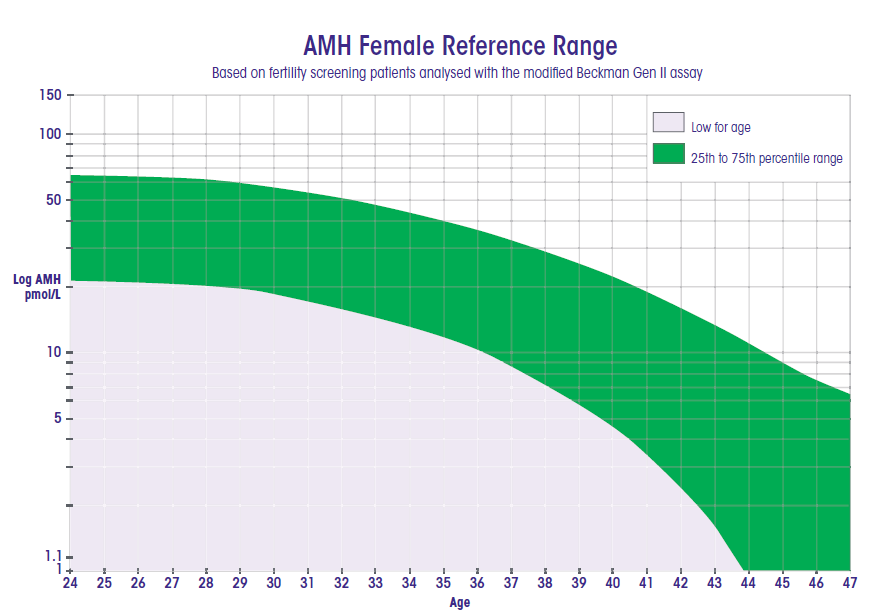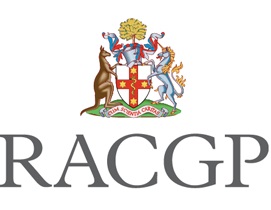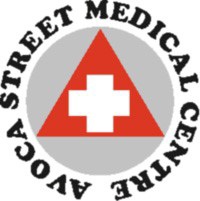Anti Mullerian Hormone (AMH)Anti Mullerian Hormone (AMH) is a hormone made by the small follicles in the ovary which have not yet begun to develop into mature eggs or ovum. These early developing follicles are called antral and pre-antral follicles. As the number of these early follicles falls over time, the level of AMH made also decreases. Why is AMH measured? 
Low AMH indicates a reduced ovarian reserve, i.e., a decreased level of fertility. AMH can provide you with valuable knowledge. AMH can be used prior to fertility treatments to help plan management. • Low AMH indicates a reduced ovarian reserve, i.e., a decreased level of fertility.• AMH can provide you with valuable knowledge.• AMH can be used prior to fertility treatments to help plan management. Ovarian reserve Ovarian reserve is a term used to describe the number of good quality eggs a woman has in her ovaries. Women are born with about 1 million eggs. Normally there is a slow decline in the number of viable eggs in the ovaries over time, however, a small number of women have a faster rate of egg loss. These women can have very reduced numbers of viable eggs and poor ovarian reserve even in their thirties. This results in the woman being less fertile. Who is likely to have reduced ovarian reserve? The majority of women who have reduced ovarian reserve have NO predisposing risk factors. Often their FSH (w) level can also appear to be normal. This is why measuring AMH can be very helpful in identifying these women. Some conditions are known to reduce ovarian reserve:
The Anti-Müllerian hormone (AMH) or egg timer test however has been found to have underestimated the number of eggs a woman has left by up to 283 per cent. Doctors noticed that there had been a spate of falsely low readings since 2011 and the testing protocol was revised in July 2013 as a result of these concerns. Now a new study conducted between 2012 and 2015 by scientists from fertility company Genea has found the old protocol used to test fertility underestimated egg levels by between 3.4 to 283.3 per cent compared to the new protocol introduced in 2013. More from news.com.au The AMH test costs around $80 and is not covered by Medicare. More from IVF Australia |
|
Covid-19 - Information
Flu Shot Emergency Numbers After Hours 13 74 25 Contact Hours |
Doctors
Appointments Fees About Map Links |
Immunisation
Feedback Local Pharmacies Resources Home |

| 
|

| 
| 
| 
| 
|
|---|---|---|---|---|

| 
| 
| 
| 
|



